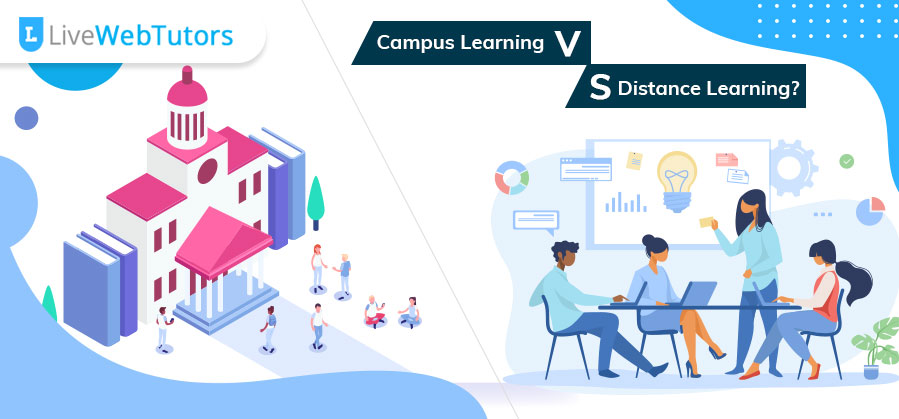

Higher education is getting bashed by the COVID-19 pandemic. This year’s campus shutdowns have caused a rapid turnaround to “remote learning,” exposing the fragmented adoption of high-quality education technology and digital capabilities across thousands of Aussie schools and universities. The tempestuous year, along with aborted campus openings and wide-ranging online and blended learning options, has raised the pressure on reputed colleges and universities all across the globe.
Before the pandemic struck our lives, there was already widespread acknowledgment that the usual teaching model is seriously challenged. 2020-21 marks a transparent inflection purpose as students, educators, and government leaders alike scrutinize the worth and value proposition of higher education through the new lens of ancient classroom learning versus multiple digital modes of education delivery.
Several reputed academic institutions are offering remarkable discounts on tuition fees for offering an absolutely online learning experience in a traditionally extraordinary fashion, highlighting monetary pressures, and opening up Pandora’s box. The changes occurring due to the coronavirus pandemic are going to lead to some important turning points between the pre-pandemic era, when on-campus degree-focused learning was the default, to the pandemic times, when digital, online, career-focused learning became the pin of competition between institutions.
When online learning was still in its infancy, educators were skeptical of hiring resources with online credentials. However, in today’s complex era, online learning programs are recognized to be at par with their on-campus counterparts.
Before determining which learning option is better, you need to be aware of major factors that employers consider before evaluating online degrees:
A valid certification that ensures that the academic institution meets specific standards and its graduates have the requisite skill set.
The value of the institution as well as the program you are pursuing.
The existence of a standard campus reassures the students that the institution is esteemed and well-established.
Online education represents a unique understanding of ancient on-campus learning. Amidst the COVID-19 pandemic, it is the most feasible learning option, particularly among non-traditional learners and busy working scholars. However, with its multiplied adoption, the question has arisen of whether or not online education is effective in offering students the knowledge they need to have to earn their degrees, enhance their careers, and even move to the next stage of their educational quest.
During these uncommon times, campus shutdowns led to a fast rush to “remote learning,” exposing the fragmented adoption of high-quality education technology and digital capabilities across thousands of colleges and universities. On-campus lectures just ceased overnight and we have replaced them with online and blended education options. However, the larger question is, will online classes compensate for campus education?
As we already know, the Coronavirus pandemic has affected all areas of life, and the education sector wasn't spared. However, we have worked around it and numerous universities have developed their own online courses and adopted new strategies to regulate to new normal. They can take the Assignment Writing Service of professional writers. The improvisation of already existing techniques and technology has ensured an uninterrupted educational experience for students. Let’s dig a touch deeper into what the model entails and how it should impact your study plans.
Once identified as a specialized kind of education, online education has now turned out to be the new normal. Earlier, it had been operating professionals & distance learning students who used it as a learning tool for enjoying the convenience, flexibility, and affordability it offers. Today, this scenario has altogether changed. Continuous advancement in technology has ensured that online learning emerges as an excellent quality of education at large. It's conjointly created some fascinating and realistic queries that need to be resolved as soon as the world reopens fully.
There are some things educators will have to keep in mind to effectively deliver a program online. For starters, they need to use a tech-friendly platform that allows them to offer rich content and an immersive learning experience. Immersive technology pushes students into a virtual environment, wherever they not only gain necessary academic skills but conjointly master problem-solving, crucial thinking, and technical and artistic abilities, each one by one and unitedly with other scholars. With the utilization of the right technology, educators will be able to create different situations so students can see and perceive the content in a very interactive manner.
Apart from this, there is a dire need for sturdy student lifecycle management to maintain better student-teacher engagement. Now with the multiplied competition and introduction to different learning models, universities are compelled to explore new ways of skyrocketing student engagement and up student retention. This approach allows focusing on the whole student journey from admissions through to graduation to guarantee student success.
Lastly, institutions need to invest in a very reliable examination platform with a proper monitoring system that is able to effectively improve the credibility of the evaluation. In the present scenario, online examinations and online talent Economics Assignment Help have become quite normal. Most universities, instructional institutes, and colleges are conducting their exams online to beat disruptions and maintain learning and education continuity.
Learn all about on-campus learning
Campus programs are generally a possibility for students who will afford them. However, the pandemic established that campus learning has to be compelled to be adaptable. Educators need to bring to the table flexibility in terms of time, modules, and courses. Also, several on-campus courses can be easily reworked into hybrid learning segments. This enables the institution to reach out to more students and save their time spent managing the on-campus schedules. This way, an institute can earn more geographical coverage, status, and higher ranking.
Get familiar with the hybrid or fusion learning approach
Online programs might not supply the information that some learning components provide. Hybrid learning is nothing but a sure-shot way of mixing standard and digital education delivery methods, using the most effective possibility for each learning objective to achieve immense success. This means in contrast to the blended learning models; the hybrid approach varies widely in line with the topic matter and also the requirements of a specific group of students. A hybrid or fusion learning approach may be a better option for programs having both data and skills elements. The agility and multiple episodes of online and offline education delivery will bring better learning or experiential learning for college students. Once the world reopens this can be a better way to develop your skill set.
Online education has already created quite an impact. A large majority of recognized academic institutions all across the world have shown the model is booming and, extremely importantly, growing apace in popularity. So, whereas the standard lecture approach might not escape fully anytime soon, online learning is the need of the hour in today’s difficult times.